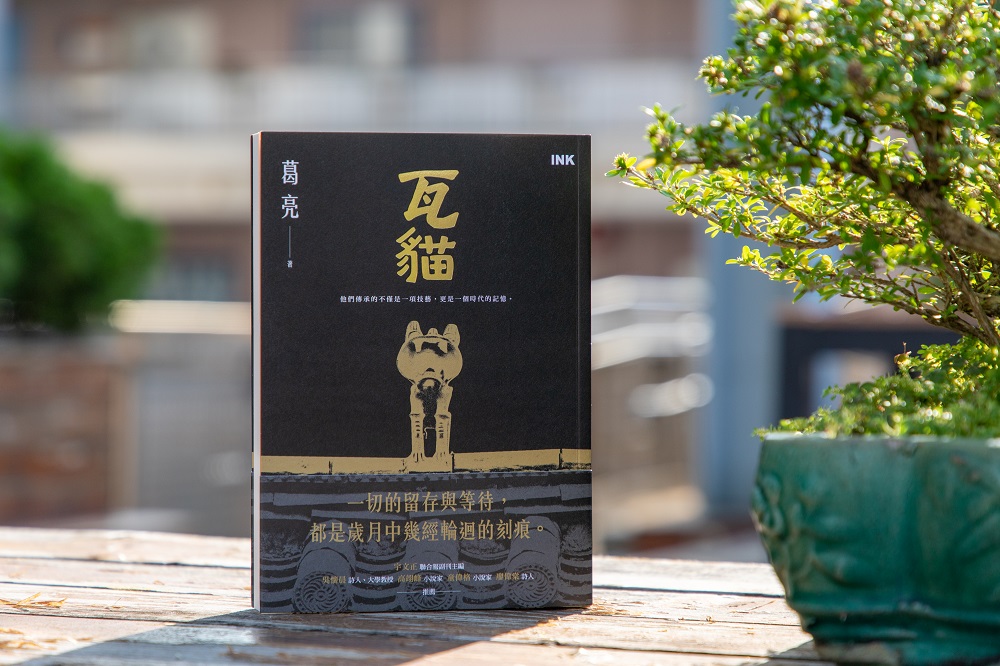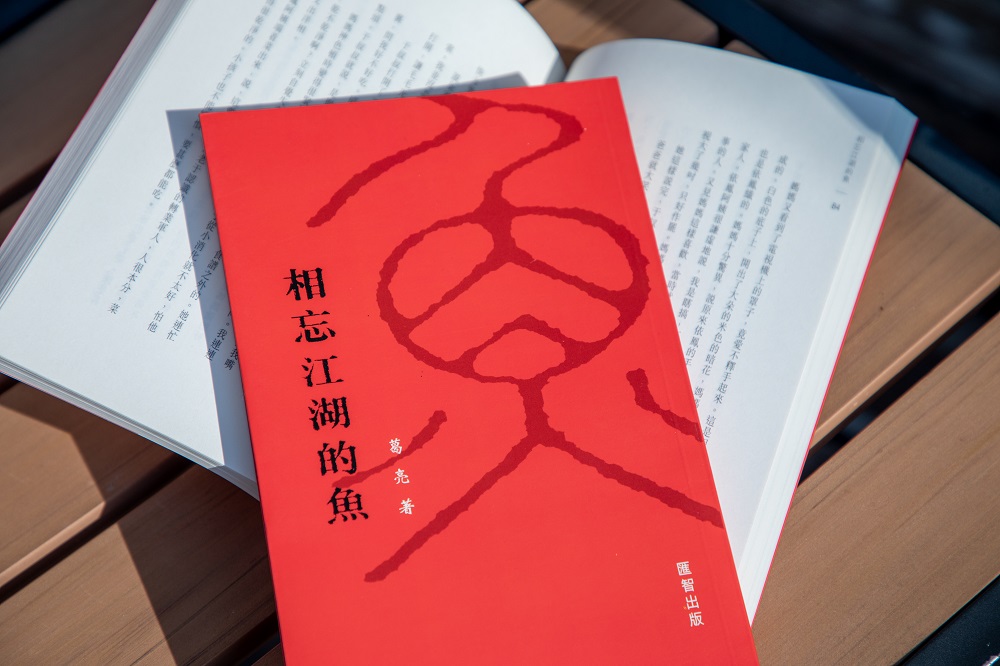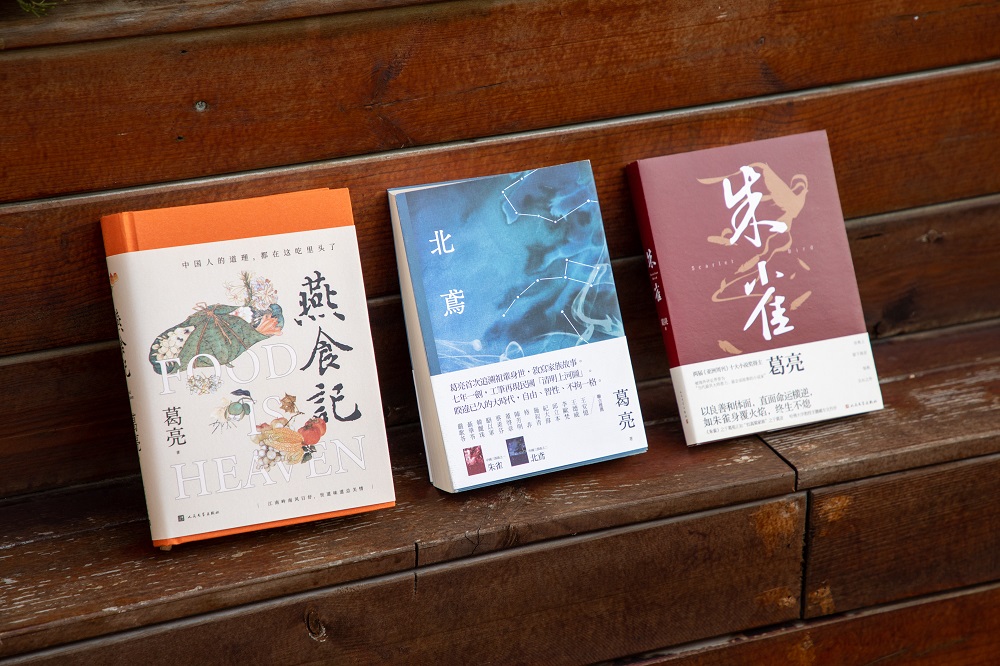Discover HKBU
A literary tribute to Lingnan: Professor Ge Liang shares his insights on fiction writing
29 Sep 2022
Professor Ge Liang of the Department of Chinese Language and Literature is a celebrated author whose works have won him recognition in contemporary Chinese literature. Growing up in Nanjing, and having lived in Hong Kong for more than 20 years, his deep communion with both Jiangnan and Lingnan cultures is reflected in his books.
Told using straightforward yet considered language, his works provide a window into the past. In his acclaimed debut novel Scarlet Finch, he tells the tales from his hometown, and he explores his family’s history in Paper Hawk. His latest work, Food is Heaven, follows the development of Guangdong and Hong Kong’s cuisines, and it illustrates the changes in Chinese society over the past century. By linking to history through literature, his works invite modern readers to experience the past and understand the present.
Award-winning novella tells the story of craftsmen
This August, Professor Ge won the 8th Lu Xun Literary Prize for his novella Hair Cutting. He is the first-ever writer from Hong Kong to win this award, which is widely recognised as one of the leading Chinese-language literary awards in the world.
Hair Cutting is centred around the traditional hairdressing industry in Hong Kong and it features scenes from everyday life that readers can relate to. The story outlines a broad view of the city’s history and its urban landscape, and the book also examines the development of traditional industries and the fates of their practitioners over time.
Professor Ge came up with the idea for this novella after walking past a traditional barbershop in North Point. The shop’s old rotating barber’s pole caught his eye, and he became drawn to the nostalgic look of the place and the life stories of the barbers. He says, “In the story, I have written about the Hong Kong and Shanghai-style barbering techniques in order to show how the city has changed as well as the inclusivity and energy of Hong Kong society.”
By depicting the craftsmen’s beliefs and persistence, the work explores the value of tradition in modern society. Professor Ge says, “The theme of Hair Cutting is about passing on traditional crafts to future generations, which involves a process of innovation in contemporary times. When young people carry on their families’ legacies, they often integrate their sense of aesthetics and values into the crafts. What’s inherited from the older generation will evolve and create new value in the present, and this shows the everlasting strength of our cultural traditions.”
Hair Cutting is part of the short story collection Tile Cat, which includes two other tales of craftsmen who specialise in book restoration and pottery respectively. In recent years, Professor Ge has taken an interest in cultural heritage studies, and he has been exploring this theme in his creative work, resulting in a series of novels about traditional artisans. He has visited craftsmen from different places to learn about their crafts and personal stories. What has impressed him most is the craftsmen’s passion for their art and their optimism towards the survival of traditions.
He recalls a woodcarver in Macau whose children work in the financial industry. As a result, they did not inherit his skills, but the old master remains hopeful about preserving traditions. “Researchers have conducted an oral history project and modelling on his craft, so it will not be too difficult to revive it in the future. Cultural heritage preservation is no easy task but it is not impossible,” Professor Ge says. He believes cultural practices can renew over time, and he is more concerned with how traditions change in the present and the various possibilities for their development, rather than simply staying stuck in the past.
Writing as a tribute to Nanjing and Hong Kong
Professor Ge once said that his literary works are inspired by the openness, richness and tolerance of Lingnan culture.
He says, “Nanjing is the birthplace of my writing, while Hong Kong is like a magnetic field that drives me to express myself through literature.” In 2000, Professor Ge left Nanjing, the city where he was born and raised, to study for his master’s and doctoral degrees in Hong Kong. The notable differences between the two cities in terms of culture, environment and the pace of life had an impact on him. This led him to look back on his hometown, and at the time, he longed to express himself through literature. His first full-length novel, Scarlet Finch, sprung out of his affection for Nanjing, and he later wrote Paper Hawk based on the experiences of his grandparents. Both novels were named “Top Ten Chinese Novels” by Asia Weekly. Paper Hawk was honoured with the 2016 award by the China Society for Book Review, and it was nominated as a finalist for the 10th Mao Dun Literature Prize, one of the most prestigious literary awards in China.
His debut short story collection published in Hong Kong, Try to Remember, received the first Hong Kong Book Prize, and this award still means a lot to him. He says, “This book is about the people and life in my hometown of Nanjing, but it has been well received by readers in Hong Kong. As a young author, it was very encouraging to be able to get such positive feedback for my first book here. I believe that literature can connect people across borders.” For Professor Ge, any literary work that displays sincerity can resonate with readers, as humanity is a universal theme.
In Hong Kong, he has published a series of works based on the city and Lingnan culture – including Typhoon Raccoon, Ah Tak and Steve, and Food is Heaven – as a tribute to his chosen home. “It is crucial for fiction writers to find an emotional tie to the themes in their work. When writing in Hong Kong, my sentiment for the city has deepened and I want to express that through my books,” he says.
Professor Ge has received numerous awards in the arts and culture sector, including the 1st and 14th Hong Kong Book Award, the Hong Kong Arts Development Award and the First Prize of The Unitas Fiction Writer’s Prize of Taiwan. He has been named the Cross-Straits Writer of the Year and Southern People Weekly’s Person of the Year.
Dual role as scholar and author
Professor Ge joined HKBU in 2007, and his roles as a scholar and an author have complemented each other. Academic research emphasises the need for rational thinking, which can also be applied to creating logic and story structures as well as organising ideas in fiction writing. Similar to how researchers have to collect data, conduct fieldwork and interview subjects, authors need to study their chosen topics in detail before writing. Professor Ge says that he often spends a long time preparing before he starts to write, therefore each novel has taken a long time to complete: Paper Hawk took him seven years to write and Food is Heaven six years.
As Professor Ge’s research focuses on modern and contemporary literature, he has studied the works of different authors. Since becoming an author himself, he has gained a deeper understanding of his research areas. “Writing aids my research,” he says. “I can relate to the experiences of other authors: the angst during the writing process, the passion for creating, the state of mind when developing a work, the considerations when formulating ideas and themes, and the joy when you discover different creative possibilities.” In both his creative writing and research, his novels and papers are filled with humanity, and he brings his subjects to life with keen observations and warmth.
Fiction writers are often curious people, and Professor Ge’s time with the students at HKBU has piqued his interest in different perspectives. He says, “The process of change in society and culture is often relevant to young people. Throughout my teaching career at the University, I have been given the opportunity to meet and interact with different young people every year. They have brought with them new perspectives which help me understand their values, cultural trends and the shifts in aesthetic standards.”



